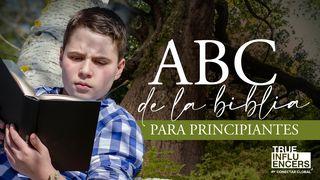Undying Commitment: A 14-day Study in StewardshipMuestra

What Must I Lose?
Perhaps Peter thought he was being loyal. His teacher, friend and master had declared that he must go to Jerusalem and suffer many things at the hands of the Jewish leaders, that he would be killed and on the third day be raised to life. Peter, of course, never even took part in the last part of Jesus' statement. The concept of resurrection was so outside of his understanding that it flew right over his head because his head was in the world and not in the kingdom of heaven. He only heard 'must be killed.' So his recoil was palpable: 'Never, Lord!' Peter's denial, his finite way of looking at things, earned him a stern rebuke from Jesus, who then issued one of his most perplexing statements about life and death in the kingdom of God.
We admit and raise to hero status those who give up everything for the kingdom. The movie Amazing Grace depicts the sacrifices William Wilberforce (1759-1833), an English Member of Parliament and social reformer, made in working to end the slave trade in Great Britain. He was ready to sacrifice his position, his career, his health and his friendships as he fought the political and economic status quo that made many rich and prosperous while causing unspeakable human suffering. He persevered through all the discouragement and seeming futility and saw it to the end because of his devotion to Christ.
However much we are stirred and inspired by the courage and example of those who sacrifice so much for the kingdom, it gives us pause to ponder what might be exacted of us. When confronted with a drastic sacrifice, we want to find some way around it. We count the cost and try to guess the gain. And count again. But Jesus is very clear here. Anyone who is a follower of Christ may be called to relinquish control of life, possessions, career, traditions and more. Sacrifice cannot remain an abstract concept.
What does losing your life look like? For each of us the answer may be different; for some, such as missionary Jim Elliot, it does mean martyrdom. But many of us must 'lose our lives' on a daily basis. We sacrifice our time and talent and subject our vocations to Jesus' imperatives. We sacrifice the right to enjoy money and possessions any way we please. We are called to sacrifice to Christ's lordship our very thoughts and desires, our fears and foibles, and let him transform us into his image. We must be willing to sacrifice anything that we value as essential to 'life' as we know it when Jesus has asked these things of us. Discipleship and stewardship in the kingdom require total allegiance. It's a steep price to pay, but with eternity in the balance, it's a great deal. The journal entry from Jim Elliot is often quoted but worth repeating, 'He is no fool who gives what he cannot keep to gain that which he cannot lose.'
Perhaps Peter thought he was being loyal. His teacher, friend and master had declared that he must go to Jerusalem and suffer many things at the hands of the Jewish leaders, that he would be killed and on the third day be raised to life. Peter, of course, never even took part in the last part of Jesus' statement. The concept of resurrection was so outside of his understanding that it flew right over his head because his head was in the world and not in the kingdom of heaven. He only heard 'must be killed.' So his recoil was palpable: 'Never, Lord!' Peter's denial, his finite way of looking at things, earned him a stern rebuke from Jesus, who then issued one of his most perplexing statements about life and death in the kingdom of God.
We admit and raise to hero status those who give up everything for the kingdom. The movie Amazing Grace depicts the sacrifices William Wilberforce (1759-1833), an English Member of Parliament and social reformer, made in working to end the slave trade in Great Britain. He was ready to sacrifice his position, his career, his health and his friendships as he fought the political and economic status quo that made many rich and prosperous while causing unspeakable human suffering. He persevered through all the discouragement and seeming futility and saw it to the end because of his devotion to Christ.
However much we are stirred and inspired by the courage and example of those who sacrifice so much for the kingdom, it gives us pause to ponder what might be exacted of us. When confronted with a drastic sacrifice, we want to find some way around it. We count the cost and try to guess the gain. And count again. But Jesus is very clear here. Anyone who is a follower of Christ may be called to relinquish control of life, possessions, career, traditions and more. Sacrifice cannot remain an abstract concept.
What does losing your life look like? For each of us the answer may be different; for some, such as missionary Jim Elliot, it does mean martyrdom. But many of us must 'lose our lives' on a daily basis. We sacrifice our time and talent and subject our vocations to Jesus' imperatives. We sacrifice the right to enjoy money and possessions any way we please. We are called to sacrifice to Christ's lordship our very thoughts and desires, our fears and foibles, and let him transform us into his image. We must be willing to sacrifice anything that we value as essential to 'life' as we know it when Jesus has asked these things of us. Discipleship and stewardship in the kingdom require total allegiance. It's a steep price to pay, but with eternity in the balance, it's a great deal. The journal entry from Jim Elliot is often quoted but worth repeating, 'He is no fool who gives what he cannot keep to gain that which he cannot lose.'
Escritura
Acerca de este Plan

We often associate the word stewardship with money. While it’s true that we’re called to be good stewards of our finances, stewardship certainly doesn’t end with our bank accounts. In this plan, you’ll be challenged to consider the connection between stewardship and commitment, and you’ll be inspired to elevate your relationship with God to the top of your priority list. Each day’s reading includes a brief Scripture passage and relevant devotional.
More
We'd like to thank The Stewardship Council, creators of Zondervan's NIV Stewardship Study Bible, for the structure of the Undying Commitment: A 14-day Study in Stewardship. For more information about this plan, the NIV Stewardship Study Bible, or hundreds of stewardship resources, please visit their site at http://www.stewardshipcouncil.net/
Planes relacionados

Testigos Del Milagro: La Primera Navidad

Confiando en Los Propósitos De Dios

ABC De La Biblia Para Principiantes

¡Levántate! 7 Claves Para Levantarte Y Seguir.

1 Tesalonicenses: Modelos a imitar

Que El Mundo Crea

La Gracia. 7 Claves Para Vivir en Plenitud.
Marcas De Un Discípulo
